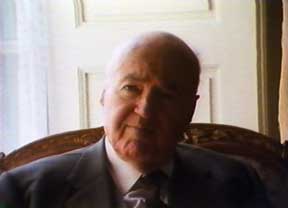
You may know that I am overwhelmingly interested in the figures at the margins of life. The successful I find dull - their stories are so standardised and oft repeated, and their work is frequently over-praised. If someone is too regularly acclaimed, all of my warning bells start ringing. If the world is at one in agreeing a person a genius, I am invariably at odds.
I admire the careers and stories of those who struggled for success, but never quite made it, for whatever reason. So often the books of the moderately famous are SO much more interesting.
One of those people who have fascinated me since I first heard of them is Harold Acton.
Acton was an extraordinary person. Born to an immensely wealthy American woman and an impoverished, but upper class, English father, Acton grew up in Florence and went to study at Eton and Oxford. He knew absolutely everybody, and was a socially gifted raconteur whose legendary charm (and ample allowance) made him a popular figure in "between-the-wars" England. Clever and entirely over-cultured, Acton developed a reputation as a lounge lizard and dilettante, and being wealthy proved to be his curse. Never forced to earn a living, Acton never really applied himself to anything much, and so a really quite brilliant talent was frittered away in a lifetime of moderately amusing interests and diversions.
For many years he was supposed to be the model for Evelyn Waugh's foppish character Anthony Blanch in Brideshead Revisited, but Waugh always denied this, and it is much more likely that the real-life model was Acton's Oxford pal, Brian Howard - the most phenomenally wonderful failure ever to have existed (with the possible exception of Stephen Tennant).
Acton became something of a sinophile, and spent some years living in Beijing, where he set a wonderful comic novel called Peonies and Ponies, which no-one ever reads any more, but which is really quite lovely.
He was a lifelong friend of Nancy Mitford, and wrote the first biography of her.
Acton's most famous book was probably his autobiography, Memoirs of an Aesthete, which I am currently re-reading for the umpteenth time. He had the good fortune to outlive most of his contemporaries, and so when he released the autobiography he was enough of an historical oddity to excite the interests of a nostalgic reading public.
All his life Acton was more or less openly gay, and there are some stinging passages in Memoirs when he reflects on the respectable middle-aged scions of British society who were once his lovers during the salad days at Oxford. His reputation as an art connoisseur grew and grew, and when he died he left his sizeable fortune and collections to New York University. This estate is still the subject of court challenges, as it was one of the finest and wealthiest in Italy.
Acton's miniscule literary output belies his skill as a writer. The books are really very charming, well-crafted in an old-fashioned way, and well worth reading.
Comments
Cioran Sellars
Anita